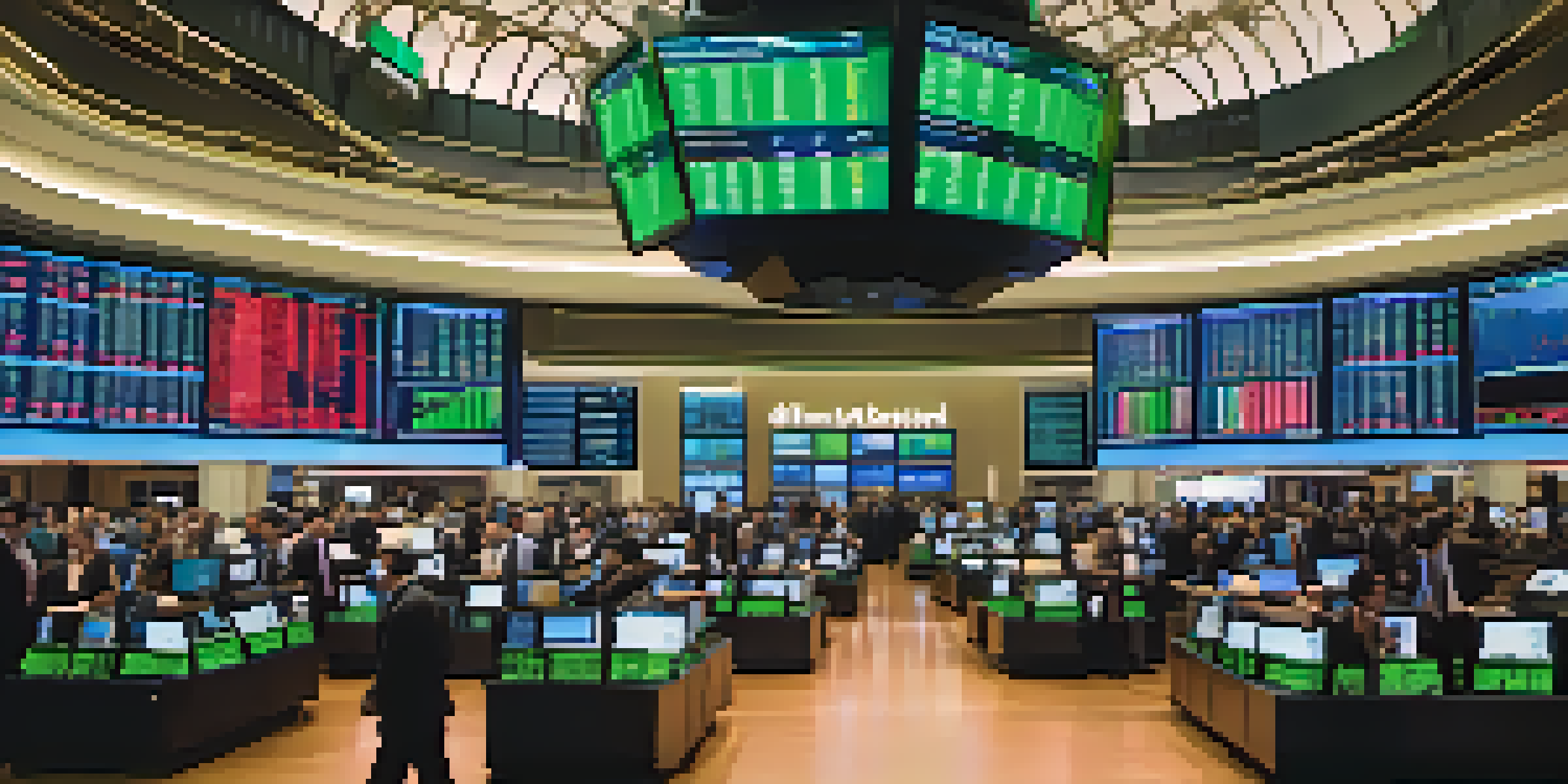How Political Elections Influence Investment Markets

Understanding the Connection Between Politics and Economics
Political elections play a significant role in shaping the economic landscape. When a new leader is elected, their policies can directly impact market confidence and investor behavior. This connection isn't just theoretical; it has real-world implications for investment strategies.
In the long run, the sharpest weapon of all is a kind and gentle spirit.
For instance, a pro-business candidate may boost investor optimism, leading to increased market activity. Conversely, a candidate with policies perceived as harmful to businesses can cause market apprehension, prompting investors to reassess their portfolios.
In essence, the political climate acts as a barometer for market performance, influencing everything from stock prices to foreign investment flows.
Investor Sentiment: The Psychological Impact of Elections
Investor sentiment often fluctuates with the political cycle, creating waves of optimism or pessimism. This psychological aspect can drive market trends, irrespective of the actual economic data. For example, the anticipation of a new administration can lead to speculative investments, as traders try to capitalize on perceived opportunities.

Moreover, the media plays a pivotal role in shaping this sentiment. Headlines about a candidate's policies or potential electoral outcomes can sway public opinion, causing investors to act on emotion rather than solid analysis.
Elections Influence Market Behavior
Political elections significantly affect investor confidence and can lead to shifts in market performance.
Understanding this psychological aspect is crucial for investors, as it can lead to both opportunities and pitfalls in the market.
Historical Trends: Elections and Market Performance
Looking back at historical data, we can see patterns emerge in market performance during election years. For example, markets often rally in the months leading up to a presidential election due to the uncertainty of potential outcomes. This phenomenon can be attributed to investors positioning themselves for possible shifts in policy.
The only thing we have to fear is fear itself.
However, these trends can vary significantly based on the political climate and economic conditions at the time. A notable example is the 2008 election, where the market was already in turmoil due to the financial crisis, leading to unpredictable investment behavior.
These historical insights serve as valuable lessons for current investors, helping them navigate the complexities of election-related market shifts.
Sector-Specific Impacts: Who Wins and Who Loses?
Not all sectors respond equally to political elections; some thrive while others suffer. For instance, healthcare and renewable energy sectors may see a surge in investment when candidates with supportive policies are elected. This is because investors anticipate favorable regulations and funding opportunities.
On the flip side, industries like fossil fuels or tobacco may face challenges if new policies aim to curb their operations. This sector-specific impact illustrates the nuanced ways elections can alter the investment landscape.
Investor Sentiment Drives Trends
The psychological impact of elections creates waves of optimism or pessimism that can influence market trends.
Investors need to be aware of these dynamics to make informed decisions about where to allocate their resources during election years.
Global Markets: The Ripple Effect of Domestic Elections
Elections don’t just impact local markets; they can create ripples in global investment landscapes. A significant electoral shift in a major economy, like the United States, can affect international markets due to interconnected economies. For example, the election of a leader who advocates for protectionist policies can lead to global market uncertainty.
Additionally, foreign investors often watch domestic elections closely, as the outcomes can influence their investment strategies. If a new administration is perceived as hostile to foreign investment, it can lead to capital flight and market instability.
Understanding these global implications is essential for investors looking to maintain a balanced portfolio amid political changes.
Navigating Uncertainty: Strategies for Investors
In the face of political uncertainty, investors can adopt various strategies to mitigate risk. One approach is diversification, which involves spreading investments across different asset classes and sectors to reduce exposure to political volatility. This way, if one sector takes a hit, others may remain stable.
Another strategy is staying informed about political developments and adjusting portfolios accordingly. Keeping a close eye on election forecasts and policy proposals can help investors anticipate market shifts and make timely decisions.
Sector Responses to Political Change
Different sectors react variably to political outcomes, affecting investment opportunities and risks.
Ultimately, being proactive rather than reactive can empower investors to navigate the uncertainties that accompany elections.
The Role of Financial Advisors in Election-Year Planning
Financial advisors can be invaluable during election years, providing insights and strategies tailored to individual investor needs. They help clients understand the potential impact of political changes on their investments, ensuring that they are well-prepared for any market fluctuations. This guidance can be especially important for investors who may feel overwhelmed by the complexities of the political landscape.
Moreover, advisors can assist in developing a long-term investment strategy that accounts for the unpredictability of election outcomes. This approach can help clients remain focused on their financial goals rather than getting caught up in the election frenzy.

Involving a financial advisor can foster confidence and clarity in decision-making during times of political uncertainty.
Conclusion: The Ongoing Dance Between Politics and Investment
The relationship between political elections and investment markets is intricate and ever-evolving. As elections shape policies and public sentiment, investors must remain vigilant and adaptable. Understanding the historical context, sector-specific impacts, and global ripple effects can equip investors with the knowledge needed to navigate these turbulent waters.
Moreover, employing strategic approaches and seeking professional advice can further enhance investment resilience in election years. Ultimately, recognizing that politics and economics are intertwined can empower investors to make informed choices.
As we look ahead to future elections, the dance between politics and investment will continue, reminding us all of the importance of staying informed and flexible in our investment strategies.